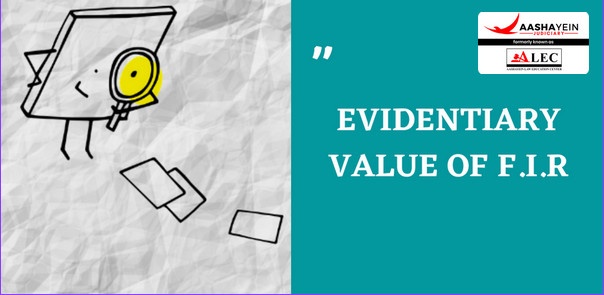Introduction
The Supreme Court, in this case, addressed the admissibility of a FIR when the informant dies a natural death before trial. The Court held that such a FIR is not substantive evidence unless it qualifies as a dying declaration under Section 32 of the Indian Evidence Act, 1872(Now Section 26 of BSA,2023). It ruled that an investigating officer cannot prove the contents of the FIR in such circumstances.
Facts of the Case
The appellant’s daughter was married to the respondent. She allegedly died by suicide due to harassment by her husband, father-in-law, mother-in-law, and her husband's first wife. The deceased’s father lodged a FIR against the accused persons for cruelty and abetment of suicide. Before the trial commenced, the informant (deceased’s father) passed away due to natural causes. The Trial Court convicted all accused persons and allowed the investigating officer to prove the FIR’s contents. The High Court overturned this decision, ruling that the FIR’s contents were inadmissible in evidence. The matter was brought before the Supreme Court.
Issues Before the Court
- Whether a FIR can be treated as substantive evidence if the informant dies a natural death before trial.
- Whether an investigating officer can prove the contents of the FIR in such cases.
- Whether the accused could be convicted for abetment of suicide based on the available evidence.
You can also read the Blog by visiting [Blog]
For more information, visit [Aashayein Enquiry Section]
Contentions of the Petitioner
The deceased was subjected to harassment and cruelty by her husband and in-laws, which forced her to take her own life. The FIR lodged by the deceased’s father was crucial evidence in proving the allegations. Since the father passed away, the investigating officer should be allowed to prove the FIR contents. The Trial Court rightly convicted the accused based on corroborative evidence.
Contentions of the Respondent
The allegations of cruelty and abetment of suicide were baseless and not supported by concrete evidence. The High Court rightly ruled that the FIR’s contents were inadmissible because the informant died a natural death. The investigating officer had no authority to prove the FIR’s contents as it was not a dying declaration. There was no direct evidence linking the accused to the alleged harassment leading to suicide.
Court’s Analysis
The Court held that a FIR by itself is not a substantive piece of evidence unless it qualifies as a dying declaration under Section 32(1) of the Evidence Act, 1872. If the informant dies a natural death, the FIR’s contents cannot be proved through an investigating officer. The Court clarified that the officer can only prove that the FIR was registered and identify the signatures on it, but cannot testify regarding its contents. The Court found that the available evidence was insufficient to establish that the deceased had no alternative but to take her own life, and hence, the accused could not be held guilty of abetment. The Court referred to Harkirat Singh v. State of Punjab (1997) to support the principle that a FIR can be treated as a dying declaration only if the informant dies due to injuries related to the case.
Conclusion
The Supreme Court dismissed the appeal, holding that the FIR’s contents were inadmissible since the informant died a natural death. The Trial and High Courts erred in allowing the investigating officer to prove the FIR’s contents. The accused were acquitted due to a lack of sufficient evidence proving abetment of suicide.
Notes
- BNS Section 32(1), Indian Evidence Act, 1872 – Dying Declaration
- Section 154(3), Indian Evidence Act, 1872 – Use of FIR for contradicting a witness
- Section 157, Indian Evidence Act, 1872 – Corroboration of a witness’s testimony
- Section 145, Indian Evidence Act, 1872 – Cross-examination to impeach credit of a witness.

